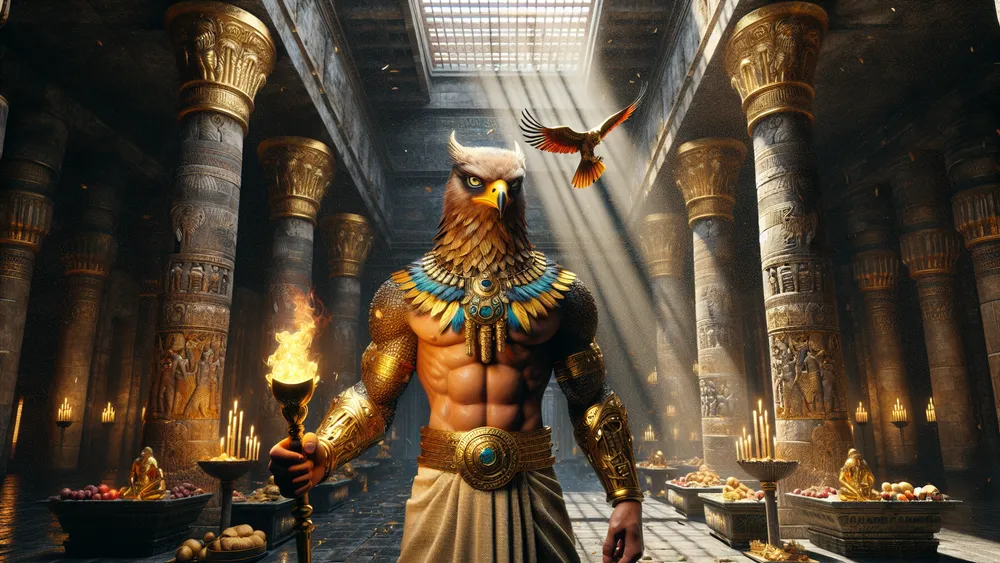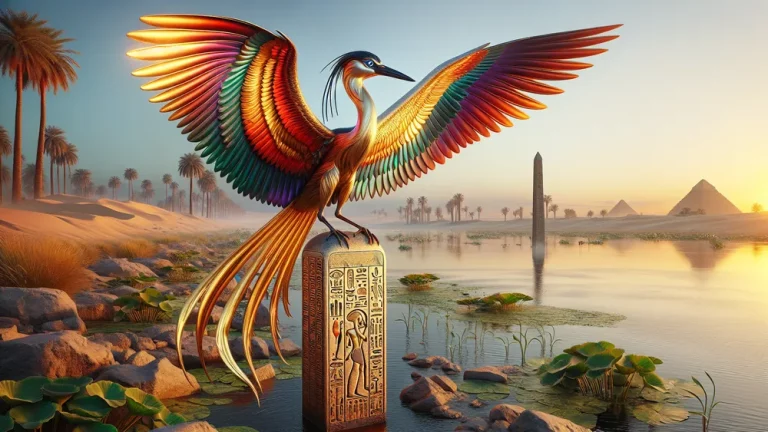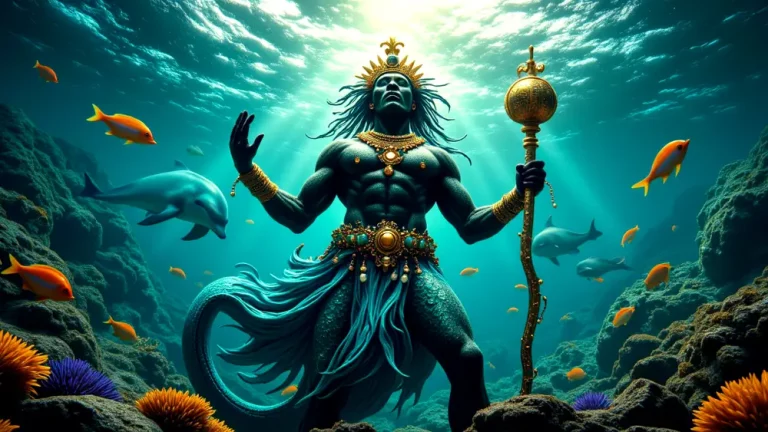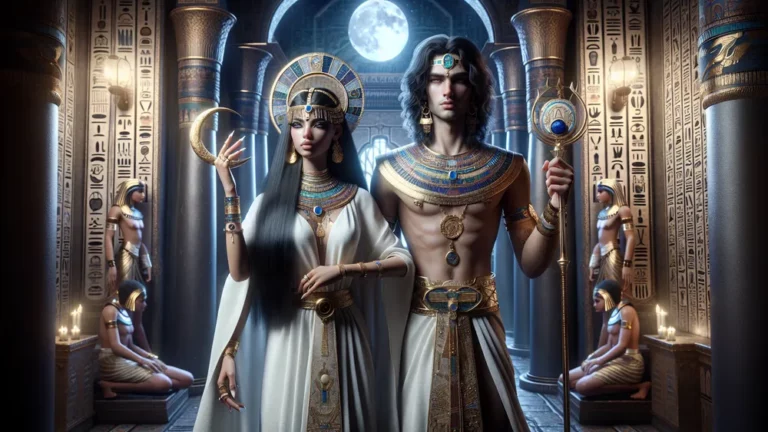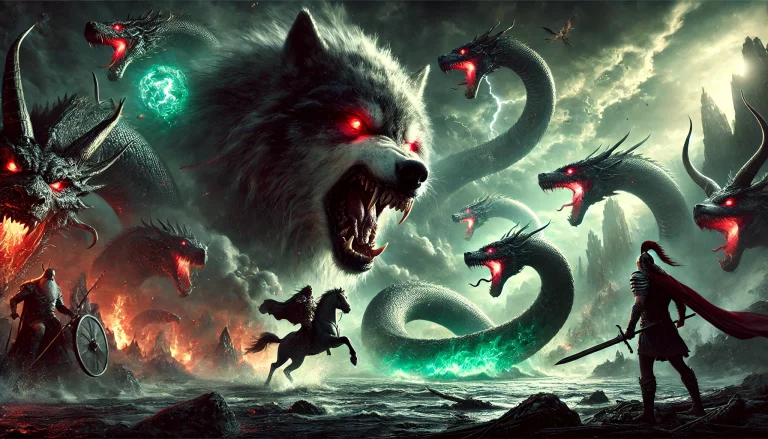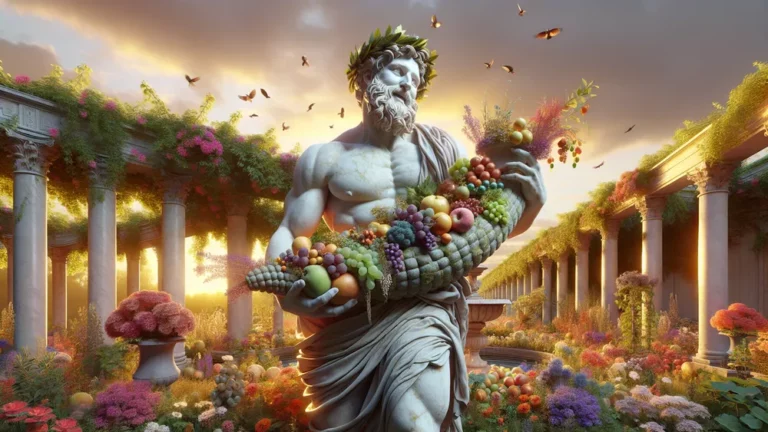Who Is The Egyptian God With A Bird Head?
Hello and welcome to a look at one of the more interesting characters in old Egyptian stories: Horus, the god with the bird head. Think about a god that combines the grandeur of a hawk with the supreme power of a deity – that is Horus. In this blog, we will look into the detailed stories, pictures, and cultural meaning around Horus.
Key Points:
- Horus is an Egyptian god with a bird head, symbolizing sky, kingship, protection, and war.
- Horus’s parents are Osiris and Isis, with a main adversary being his uncle Seth.
- Horus has different forms like Horus the Elder and Horus the Younger, each with unique roles.
- Horus’s family ties play a key role in ancient Egyptian myths, reflecting cosmic ideas.
- Horus is worshipped through festivals, rituals, and in temples, symbolizing protection and kingship.
- Horus’s influence can be seen in today’s popular culture, with appearances in movies, books, and art.
No matter if you’re new to legends or someone who knows a lot, you’ll find this trip both clear and entertaining. We start by seeing who Horus is and why he matters, and then look at his beginnings and changes over time. You’ll meet his mythical family, know about his different roles and symbols, and find out how old Egyptians honored and worshipped him.
Also, we will see the effect Horus had on other cultures and his presence in today’s popular culture. At the end, you will have a full understanding of Horus and his long-lasting influence. So, let’s begin this legendary trip together!
Who is the Egyptian god with a bird head?: Overview and Key Facts
| Main Point | Details |
|---|---|
| Name | Horus |
| Look | Falcon-headed god, often shown with a human body and falcon’s head. |
| Meaning | Shows the sky, kingship, protection, and war |
| Parents | Osiris (father) and Isis (mother) |
| Brothers/Sisters | None, but often tied with Seth (uncle) |
| Big Stories | Fights with Seth, getting back at his father Osiris, and the Eye of Horus |
| Forms/Types | Horus the Older, Horus the Younger, Harpocrates |
| Importance | Major character in Egyptian stories, sign of king power |
| Ways of Worship | Temples, parties, rituals, and gifts |
| Effect on Other Cultures | Possible effect on Christian pictures and stories |
| Today’s Representation | Seen in books, art, and popular media |
Getting to Know Horus: The Egyptian God with a Bird’s Head
Henceforth, an overall idea of Horus, let’s look more at his importance and see the different parts that make him such a key part, in old Egyptian stories.
Why Horus Matters in Egyptian Mythology
Horus, who holds a central spot in Egyptian mythology, has many sides and affects the sky, leadership, and protection. Such a protector watches from above, like a falcon in the sky, and this is Horus. His part is big since he shows the right of pharaohs to lead, showing their link to the gods. The head of a falcon on Horus is not just a look but a big symbol. Falcons see sharply and fly quickly, which means the god can see and act well. In Egyptian art and writings, Horus is often shown as a protector, keeping the people and land safe, making sure there’s order. Here are some main parts of Horus’s meanings:

- God of the Sky: As a god of the sky, Horus is tied to the heavens and events above.
- Leadership: Horus shows the pharaoh’s right to lead, often shown with the crown of Upper and Lower Egypt.
- Protection: Known as a protector, Horus is called on for safety in life and beyond.
By knowing these roles and symbols, we can see why Horus was well respected in old Egyptian culture.
Horus in Egyptian mythology symbolizes the sky, leadership, and protection, representing the pharaoh’s right to lead and the importance of safety and order.
Where Horus Came From and How He Changed Over Time
Horus’s start goes back to the beginning of old Egyptian stories, and at first, people worshipped him as a sky god. Early on, he was tied to the heavens and the sun, showing the never-ending cycle of day and night. As a falcon-headed god he was believed to fly across the sky, keeping an eye on the land and people. Over time, however, Horus’s role changed with the political and cultural shifts in ancient Egypt.
For example, in the Old Kingdom, Horus was mainly a god of the sky and war, but later, in the Middle and New Kingdoms, his role included kingship and protection.
The growth of Horus’s role brought about different types of the god, such as Horus the Elder and Horus the Younger. Horus the Elder, also known as Haroeris, was one of the oldest gods in Egypt and shown often as a mighty sky god. Meanwhile, Horus the Younger, or Harpocrates, showed up later and is linked with the story of Osiris and Isis, where he got back at his uncle Seth for his father’s death. These different types of Horus show the god’s changeable nature and lasting importance in Egyptian stories. Here are some main points of Horus’s change:
- Horus the Elder (Haroeris): An old sky god, usually shown as a falcon or man with a falcon’s head.
- Horus the Younger (Harpocrates): Linked with Osiris’s story, taking revenge for his father and protecting the pharaoh.
- Kingship Symbol: Over time, Horus became a sign of the kings’ right to rule, often shown wearing the double crown of Egypt.
By knowing these different types and their growth, we can see the richness and depth of Horus’s role in old Egyptian stories.
Horus’s Mythological Family Tree
Horus’s family is very important to many main stories in old Egyptian myths, each member having a key part in his story. His father, Osiris, was the god of the afterlife and coming back to life, meaning death and being born again. His mother, Isis, is the powerful goddess of magic and motherhood, known for her dedication and cleverness.
Horus’s uncle, Seth, was the god of chaos and mess, often shown as the bad guy in these stories. The relations between these family members are like a dramatic tale, where Horus gets back at his uncle Seth for killing his father Osiris, showing the never-ending fight between order and chaos.
This family story not only shows personal grudges and alliances but also means bigger cosmic ideas. Picture it as a mythological TV show where what each character does has big effects on the world. The importance of Horus’s family is in their showing basic parts of life and the world, making their stories timeless and understandable by everyone.
The Many Roles and Symbols Tied to Horus
Horus is a god in Egyptian mythology with many parts and is seen in many important roles. As the god of the sky, Horus is often shown as a falcon or a man with a falcon’s head, meaning he rules the heavens. This role is like a guard watching over the world from the sky, keeping the balance of day and night.
Also, Horus is respected as a god of protection, called on by ancient Egyptians for safety and security. His defending nature is shown in his battles against Seth, where he keeps order in the world. Perhaps most importantly, Horus is the god of kingship, symbolizing the god-given right of pharaohs to lead.
The pharaohs were seen as Horus on earth, connecting their power directly to the gods, which shows Horus’s role in keeping order and justice.
The symbols tied to Horus show his many roles and qualities. The Eye of Horus, also called the Wadjet, is one of the well-known symbols in Egyptian stories. It means protection, health, and recovery, often used as a charm to keep away harm. The falcon, another clear symbol, means Horus’s sky rule and sharp vision. These symbols are not just pictures but have deep meanings that match the god’s qualities. To help understand these symbols, here is a table showing what each symbol means:
| Symbol | Meaning |
|---|---|
| Eye of Horus | Protection, health, recovery |
| Falcon | Sky rule, sharp vision, guardianship |
| Double Crown | Kingship, joining of Upper and Lower Egypt |
By knowing these roles and symbols, we get a better understanding of Horus’s importance in old Egyptian culture and how people who worshipped him saw him.
How People Celebrated and Worshipped Horus
In ancient Egypt people marked Horus’s worship with big festivals and rituals that showed his importance in their gods. One of the main festivals was the “Feast of Victory,” celebrating Horus’s win over Seth, meaning the win of order over chaos. This festival had parades, acting out the myth battles, and giving gifts to Horus.
Temples for Horus, like the well-known Temple of Edfu, were worship centers where priests did daily rituals, with food, incense, and prayers to Horus statues. These actions were believed to keep the god’s favor and ensure community protection and prosperity. Picture these rituals as ancient versions of today’s religious ceremonies, uniting the community to honor a respected figure.

The importance of these actions lay in linking people with the divine, reinforcing the social and cosmic order that Horus stood for.
The Impact of Horus on Other Cultures
Looking deeper into how Horus influenced others, it is interesting to see how this old god’s presence reached beyond Egypt and touched many other cultures and belief systems.
Horus and His Connection to Christianity
The idea that Horus might have influenced Christian images and stories is much talked about among experts. Some say bits of Horus’s life, like his amazing birth and being a savior, might have shaped early Christian stories. Horus was said to be born to Isis, who had him through a god’s action, much like Jesus being born to Mary.

Both are shown as protectors and saviors of their people, Horus fighting chaos and Jesus giving salvation. Yet, while these similarities are interesting, there are big differences too. Horus’s story is fixed in the Egyptian group of gods and its special mythical background, and Jesus’s story is key to Christian beliefs and its own historical and cultural setting.
Knowing these similarities and differences, we can see how ancient myths and religious tales can mix and affect each other.
Horus’s influence on Christian stories, particularly similarities with Jesus in birth and savior roles, is widely discussed, emphasizing how ancient myths can blend and impact religious narratives.
Horus in Today’s Pop Culture
Horus keeps catching people’s interest today, showing up in different types of media, books, and art. Movies like “Gods of Egypt” show Horus as a strong god, bringing old stories to life now. In books, Horus is in novels and comics about Egyptian myths, such as Rick Riordan’s “The Kane Chronicles” where he is important.
Artists use Horus, his famous falcon looks and the Eye of Horus in their work, showing protection and insight. These show how Horus’s story lasts, affecting today’s culture and giving rich images and stories. Just like Greek and Norse gods are now in modern stories, Horus’s myth still matters, linking the old and new in a clear way.

FAQs
1. What does Horus mean in Egyptian mythology?
In Egyptian mythology, Horus represents the god of the sky, kingship, and protection, embodying the divine right of the pharaohs to rule.
2. How can we tell Horus apart from other bird-headed gods?
We can tell Horus apart from other bird-headed gods by his distinctive falcon head and the symbols associated with him, such as the Eye of Horus.
3. What are the key stories about Horus?
The key stories about Horus include his battles with Seth and his role in the Osiris myth.
4. How did Horus shape the culture and religion of ancient Egypt?
Horus shaped the culture and religion of ancient Egypt by embodying the ideals of kingship, protection, and divine order, which were central to their societal and religious practices.

